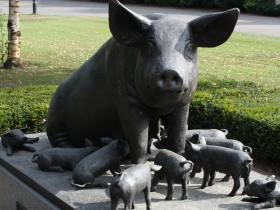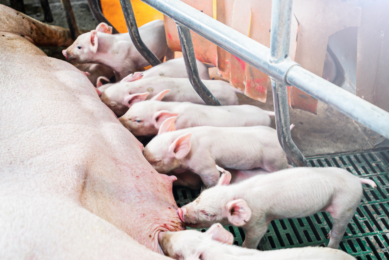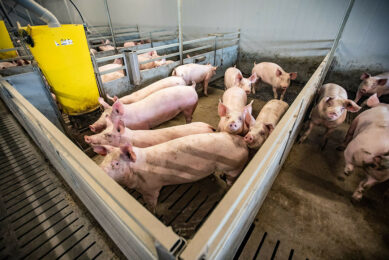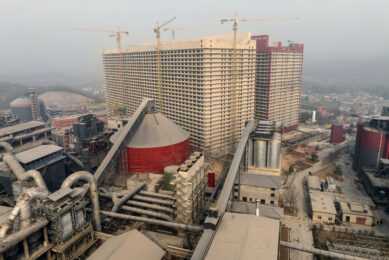Dutch focus on carbon neutral pig farming

Research into carbon neutral pig farming using a mini-biogas plant will be carried out at Wageningen University and Research Centre’s (WUR) Swine Research Farm at Sterksel, the Netherlands.
The Dutch Cattle and Meat Marketing Board (PVE) will invest €170,000 in a low-cost prototype design.
‘Sterksel’ is opting for a simple ‘mono-fermenter’ which converts manure only into gas. This fermenter is linked to a gas turbine which converts the gas into electricity and heat.
“The turbine works out much cheaper in terms of upkeep,” said researcher John Horrevorts. “If you opt for co-fermentation you have to build a small factory. We have chosen a simple and robust process that ferments manure only and turns it into electricity. This has resulted in lower investment costs.”
Methane
Sterksel Swine Research Farm consists of a sow farm and a pork farm. It produces more than 5,000 tonnes of manure a year. To achieve good fermentation the manure has to stay in the fermenter for around 25 to 30 days, says Horrevorts.
It is his aim to shorten that time by preventing the bacteria that convert the manure into energy from being washed away. The fermenter could then be smaller in size and this would make it cost-effective. In this way he hopes to produce enough energy annually to make the research farm carbon neutral. The fact that the plant extracts methane from the manure and converts it into usable energy is an additional benefit. It thereby prevents this powerful greenhouse gas from ending up in the atmosphere.
The process involving a mini-biogas-installation has been researched in the laboratory over the past few years. Horrevorts will now launch the design in practice. If the trial succeeds, he expects that companies will go on to market the mono-fermenter.
New ideas
Horrevorts is also researching a different project, again financed by the Dutch Cattle and Meat Marketing Board (PVE), in which he looks at some out-of-the-box ideas for saving energy in pig stables. Such as recycling stable heat, and harnessing the energy from animal movements.
Horrevorts said, “It is an exploration of new ideas from within the sector, which we research to determine their viability.”
Related websites:
• Dutch Cattle and Meat Marketing Board (PVE)
• Wageningen University and Research Centre (WUR)











